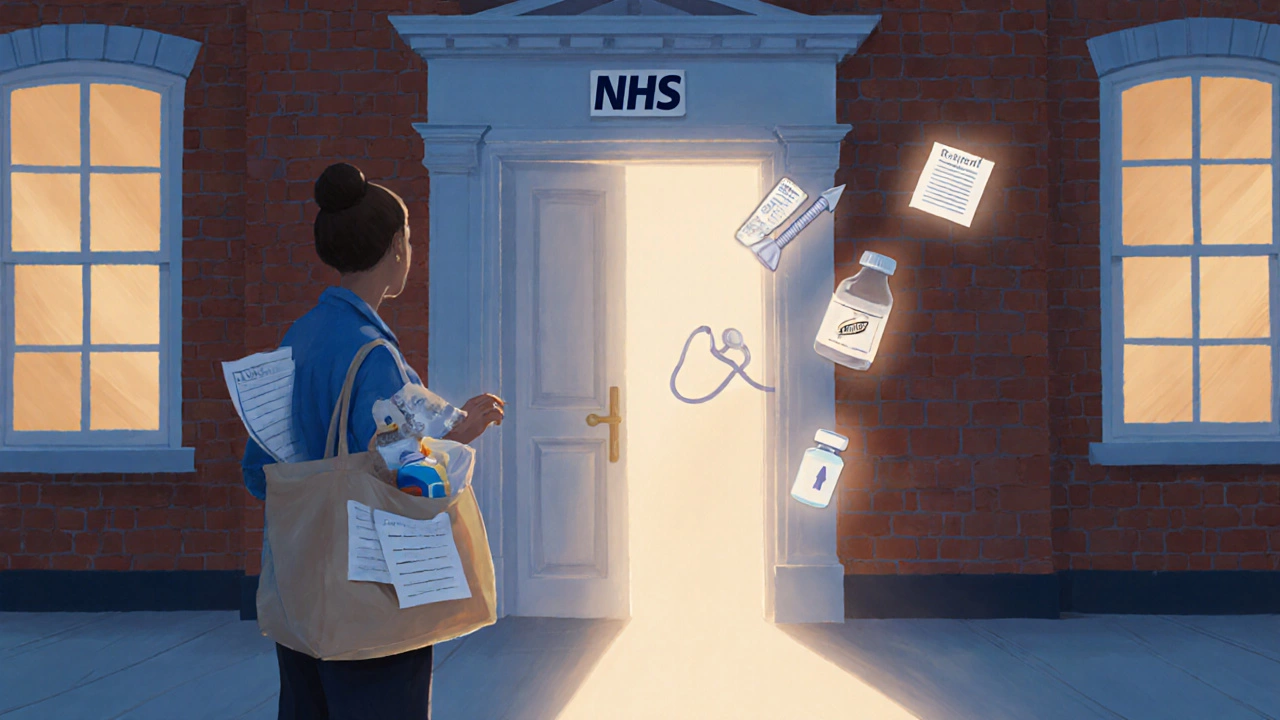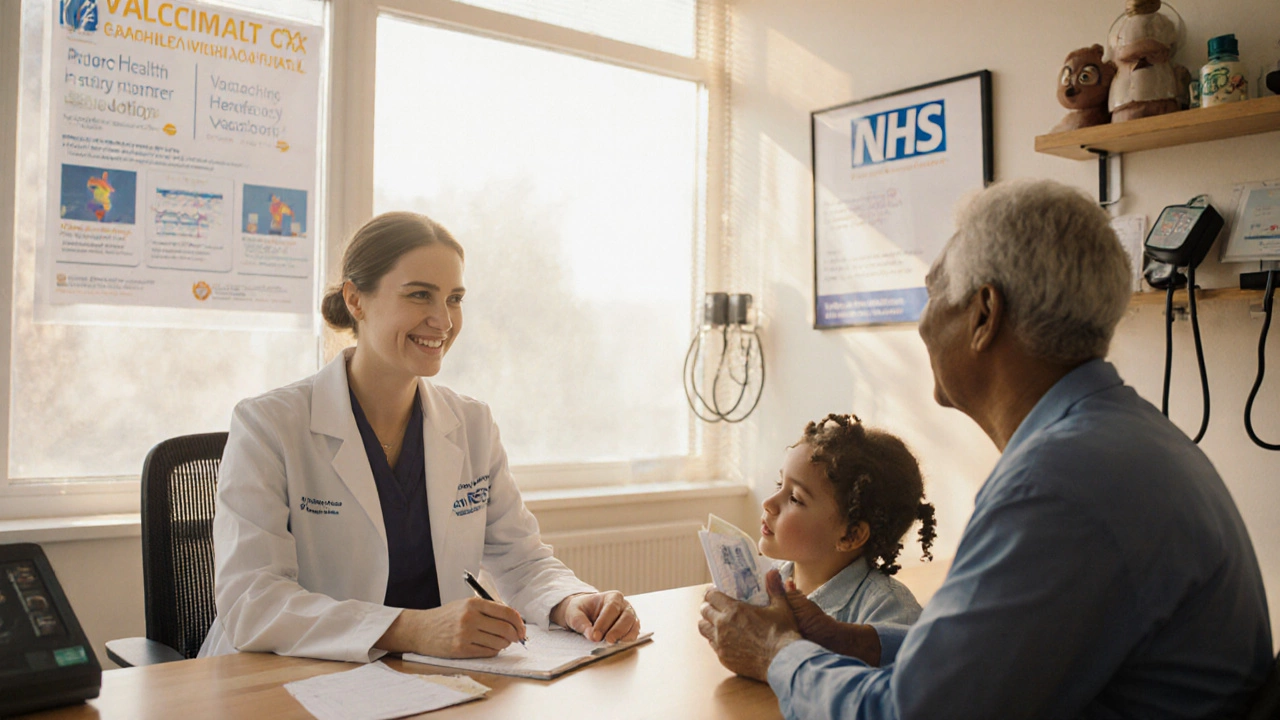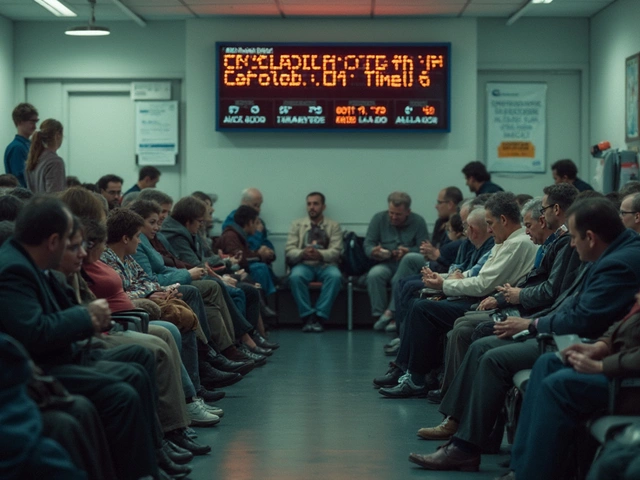GP Benefits & Comparison Tool
A General Practitioner serves as your healthcare hub, providing comprehensive, continuous care that specialists cannot match. Here are key benefits:
- Continuity of care: Your GP builds a detailed medical history over time, spotting patterns before they become serious problems.
- Holistic perspective: They consider physical, mental, and social factors together, essential for complex conditions like diabetes or depression.
- Preventive services: Regular check-ups, vaccinations, and lifestyle advice keep you healthier longer.
- Quick prescriptions: Most medicines can be issued on the spot, avoiding trips to the pharmacy.
- Referral gateway: Your GP's official referral unlocks specialist appointments within public healthcare systems.
GPs are valuable for more than just emergencies:
- Acute illness – sore throat, ear infections, flu symptoms.
- Chronic condition management – diabetes, hypertension, asthma.
- Mental health concerns – anxiety, depression, stress.
- Vaccinations and screenings – flu shots, cervical smears, blood pressure checks.
- Prescription renewals – maintaining medications without specialist visits.
| Feature | GP (Public) | Walk-In Centre | Private Doctor | Online Consultation |
|---|---|---|---|---|
| Cost (UK/Ireland) | Free under NHS/HSE | Free or low-fee | £40-£150 per visit | £5-£30 per session |
| Continuity | High – same doctor over years | Low – different clinicians each time | Medium to high – depends on practice | Low – no physical exam |
| Prescription authority | Full | Limited (often for OTC only) | Full | Full, but may require follow-up |
| Referral capability | Yes, official NHS/HSE referral | No | Yes, private referral | Usually yes, via e-prescribing |
| Appointment wait time | Days to weeks (varies by practice) | Same-day walk-in | Often same day for paying patients | Minutes to hours online |
Select your situation to see if a GP visit is recommended:
Recommended Action:
To make the most of your GP appointment:
- Write down symptoms, duration, and triggers
- List all current medications
- Bring recent test results
- Prepare your most important questions
- "I only need a GP when I'm sick" – Preventive care catches issues early
- "Specialists are always better" – GPs coordinate care effectively
- "I can't get prescriptions without face-to-face visits" – Many practices offer remote renewals
Ever wonder why the doctor next door - the GP - keeps getting a seat at the top of the healthcare hierarchy? It isn’t just because they hand out sick notes. A General Practitioner is the hub of your health, linking everyday wellness with specialist care, and they do it in ways most people don’t realize.
What a GP Actually Is
General Practitioner is a medical doctor who provides comprehensive, first‑line health care for individuals of all ages. They work in community clinics or health‑centre settings, offering continuous care rather than one‑off visits. In Ireland and the wider UK, GPs are the backbone of the public health system, known locally as the NHS in England or HSE in Ireland.
Core Benefits of Having a GP
- Continuity of care: Over the years, your GP builds a medical history that no specialist can match, spotting trends before they become problems.
- Holistic perspective: They consider physical, mental, and social factors together, which is crucial for conditions like diabetes or depression.
- Preventive services: Routine checks, vaccinations, and lifestyle advice keep you healthier longer.
- Quick prescriptions: A GP can issue most medicines on the spot, saving you a trip to the pharmacy.
- Referral gateway: When you need a specialist, the GP’s medical referral a formal recommendation that unlocks specialist appointments within the public system ensures you’re seen by the right expert.
When Should You Book a GP Appointment?
It’s easy to think a GP is only for emergencies, but they’re useful for a range of scenarios:
- Acute illness - sore throat, ear infection, flu symptoms.
- Chronic condition management - diabetes, hypertension, asthma. Here, the GP tracks long‑term trends and adjusts treatment.
- Mental health concerns - anxiety, depression, stress. Your GP can start counseling, prescribe medication, or refer to a therapist.
- Vaccinations and screenings - flu shots, cervical smears, blood pressure checks.
- Prescription renewals - keeping your meds up to date without a specialist visit.
GP vs. Walk‑In Centres vs. Private Doctors vs. Online Consultations
| Feature | GP (Public) | Walk‑In Centre | Private Doctor | Online Consultation |
|---|---|---|---|---|
| Cost (UK/Ireland) | Free under NHS/HSE | Free or low‑fee | £40‑£150 per visit | £5‑£30 per session |
| Continuity | High - same doctor over years | Low - different clinicians each time | Medium to high - depends on practice | Low - no physical exam |
| Prescription authority | Full | Limited (often for OTC only) | Full | Full, but may require follow‑up |
| Referral capability | Yes, official NHS/HSE referral | No | Yes, private referral | Usually yes, via e‑prescribing |
| Appointment wait time | Days to weeks (varies by practice) | Same‑day walk‑in | Often same day for paying patients | Minutes to hours online |
Getting the Most Out of Your GP Visits
Even a short appointment can feel rushed. Here’s a quick prep checklist:
- Write down symptoms, their duration, and any triggers.
- List current medicines, including over‑the‑counter and supplements.
- Bring previous test results or a summary of a recent hospital stay.
- Prioritize your questions - start with the most important.
By giving your GP a clear picture, you help them make better decisions, whether that’s tweaking a dose, ordering a blood test, or initiating a referral.
Common Misconceptions About GPs
Myth #1: “I only need a GP when I’m sick.” False. Preventive checks catch issues early and reduce future costs.
Myth #2: “Specialists are always better.” Not for routine matters. GPs coordinate care, preventing duplicate tests and conflicting treatments.
Myth #3: “I can’t get a prescription without a face‑to‑face visit.” Many practices now offer phone or e‑consult renewals for stable conditions.

The GP’s Role in the Irish/NHS System
In Ireland, the HSE funds GP services for residents. A GP registers you with a local practice, tracks immunisations, and issues the medical referral a document that unlocks specialist appointments within the public system. In England, the NHS works the same way, using the GP as the gatekeeper to secondary care.
When you’re covered by a private health insurer, you can still see your GP for routine needs, but the insurer may speed up referrals or cover additional services like physiotherapy.
Key Takeaways
- A GP offers continuous, holistic care that specialists can’t match.
- You should see a GP for acute illnesses, chronic management, mental health, vaccinations, and prescription renewals.
- While walk‑in centres and online doctors are convenient, they lack the long‑term perspective and referral power of a GP.
- Preparing for appointments maximizes the value you get from limited time.
- In both the Irish HSE and the UK NHS, the GP is the gateway to specialist treatment and preventive services.
Frequently Asked Questions
When should I book a GP instead of going to a pharmacy?
If your symptoms last more than a few days, you have a chronic condition flare‑up, need a prescription renewal, or want a vaccination, a GP is the right choice. Pharmacies can advise on minor ailments, but they can’t issue most prescriptions or arrange referrals.
Can I get a referral to a specialist without a GP?
In the public system, a GP referral is mandatory for most specialist appointments. Private patients can sometimes bypass the GP by going directly to a private specialist, but this is usually more expensive.
Are online GP services as effective as face‑to‑face visits?
For prescription renewals, simple skin checks, and follow‑up advice, online services work well. However, conditions requiring physical examination, auscultation, or blood tests still need an in‑person visit.
What do I need to bring to my first GP appointment?
Bring identification, your medical card (or NHS number), a list of current medications, any recent test results, and a brief note of why you’re visiting. Having this info speeds up the consultation and helps the GP build your record.
How often should I see my GP for preventive care?
Most guidelines suggest an annual check‑up for adults, plus age‑specific screenings (e.g., blood pressure, cholesterol, cancer screenings). Children see a GP more frequently for growth monitoring and vaccinations.




